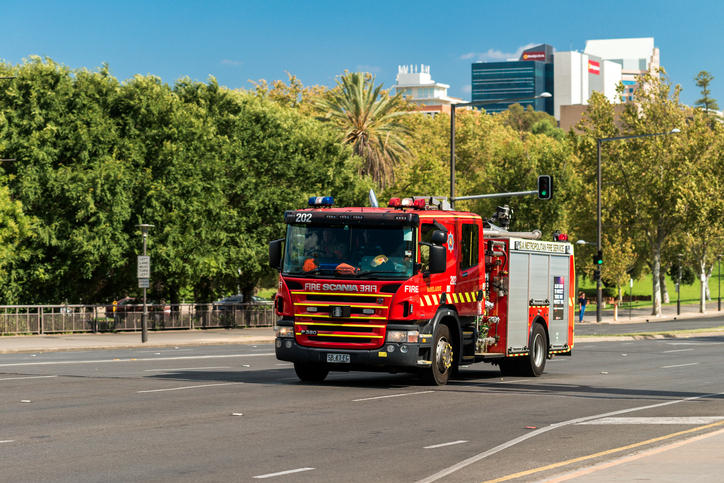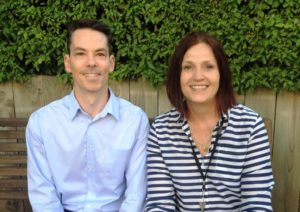
Research shows emergency service personnel are twice as likely to develop anxiety, depression, and PTSD but a new Flinders University support program is aiming to prevent the onset of mental health conditions for first responders.
Flinders University has partnered with South Australian emergency services to increase the resilience of early- career emergency responders and reduce the impact of their exposure to traumatic events.
With over 500 South Australian first responders and their significant others signing up to date, the skills and early interventions provided in the program named ‘Protecting Emergency Responders with Evidence-Based Interventions’ (PEREI) are already rated highly.
EXCLUSIVE: A specialised program targeting SA’s emergency responders is helping boost resilience. Firefighters, police and other frontline workers are twice as likely to develop anxiety, depression and PTSD but they can take steps to reduce the impact. @akunowski #7NEWS pic.twitter.com/EfliRi4sE6
— 7NEWS Adelaide (@7NewsAdelaide) February 24, 2024
Launched in 2023, PEREI is delivered in partnership with South Australia Police (SAPOL), the Metropolitan Fire Service (MFS) and the SA Country Fire Service (CFS) and is funded through Movember and the Breakthrough Mental Health Research Foundation.
 Professor Reg Nixon, who is leading the project, says PEREI delivers targeted wellbeing and resilience programs aimed at preventing the onset of mental health conditions linked to trauma exposure and stress at work.
Professor Reg Nixon, who is leading the project, says PEREI delivers targeted wellbeing and resilience programs aimed at preventing the onset of mental health conditions linked to trauma exposure and stress at work.
“We can build on early career first responders’ skills and resources so that they can draw on these when things aren’t going well and help protect them from the onset of these issues.”
“PEREI is unique in that it offers a three-pronged approach with programs aimed at first responders themselves, their support networks and their supervisors,” says Dr Nixon.
PEREI Project Manager and Clinical psychologist, Dr Marja Elizabeth, says PEREI goes above and beyond existing wellbeing programs by linking together evidence-based interventions aimed at all three groups: first responders, their significant others and their supervisors.
“Emergency responders in their first five years of service have access to a seven-module online program that was developed at the University of Oxford and which provides information and practical skills we know strengthen resilience and good mental health wellbeing.”
“In addition, they will have access to a ‘Wellbeing Coach’ who will help them get the most out of the program and be able to provide support, answer questions and keep the person on track.”
First responders’ significant others who are participating in the online modules have access to a six-session online program originally developed in South Australia by SAHMRI and Flinders University called the “Be Well Plan’.
“Living with or supporting an emergency responder can impact the entire family and it is important that significant others put their own oxygen masks on as well as provide support,” says Dr Elizabeth.
“In addition, significant others are often the first people to notice changes in an emergency responder and yet are sometimes unsure as to how to manage these early warning signs”.

PEREI has partnered with SAHMRI and modified the very successful Be Well Plan, which provides psychological and behaviour strategies over a six-week period that aim to improve mental wellbeing.
Significant others, including adult family members, partners or close friends, will also be provided with a Wellbeing Coach to provide support and information during and after the program.
Supervisors also have an important role in reducing the impact of traumatic stress and offering early intervention and support. PEREI will be offering training for supervisors of early career first responders, to better equip them with these skills and ensure the promotion of a culture that reduces mental health stigma and encourages help-seeking.
John Mannion, CEO, Breakthrough Mental Health Research Foundation says first responders are there to keep our community safe despite facing many difficult challenges.
“We are proud to work with the Flinders University research team to find ways to protect those who protect us.”
“While there are many rewarding aspects of being a first responder, it is a high-pressure role with increased exposure to traumatic events. We want to help embed strategies that build on first responders’ skills and resources so that they can reduce the impact of trauma and identify earlier interventions and preventative measures.”
Flinders University will be offering the PEREI program until the end of March with all eligible participants who sign up before the end date guaranteed entry.
If you are interested in finding out more about participating, please contact the PEREI program.

